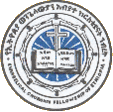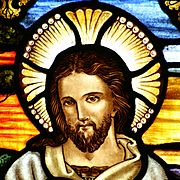Ethiopian-Eritrean Evangelicalism facts for kids
Quick facts for kids P'ent'ay (ጴንጤ)Wenigēlawī (ወንጌላዊ) |
|
|---|---|
 |
|
| Type | Eastern Christianity |
| Classification | Eastern Protestant Christian |
| Orientation | Pentecostal, Lutheran, Baptist, Mennonite, Anglican, Adventist, Holiness, Methodist, Presbyterian |
| Polity | Congregationalist and Presbyterian |
| Region | Ethiopia, Eritrea, United States, Canada, Norway, Sweden, Finland, Denmark, Germany, United Kingdom, Israel, Kenya, Australia, and other parts of the Ethiopian-Eritrean diaspora |
| Language | Oromo, Amharic, Sidama, Tigrinya, and Ethiopian-Eritrean diaspora vernacular languages |
| Founder | Peter Heyling |
| Origin | 19th-20th centuries |
| Members | ~16,500,000 |
| Other name(s) | Ethiopian Evangelical Church, Eritrean Evangelical Church, Ethiopian Evangelicalism, Eritrean Evangelicalism |
P'ent'ay (from Ge'ez Script: ጴንጤ) is a special name for Pentecostal Protestant Christians in Ethiopia and Eritrea. It's also used for people from these countries living in other parts of the world.
Today, this word often refers to all Evangelical Christian groups in Ethiopia and Eritrea. These groups are sometimes called Ethiopian-Eritrean Evangelicalism or the Ethiopian-Eritrean Evangelical Church. Another name for them is Wenigēlawī (from Ge'ez Script: ወንጌላዊ).
These Christians came about because of missionary work from America and Europe. Young people left the older Orthodox Tewahedo churches due to different beliefs. They wanted to change Ethiopian Christianity to what they thought was closer to its original form.
Contents
What Does P'ent'ay Mean?
The word P'ent'ay was first used in the late 1960s. It was a nickname for churches that believed in the Pentecostal experience and special spiritual gifts from the Holy Spirit. It described local Protestant Christians who were not part of the traditional Ethiopian or Eritrean Orthodox Tewahedo churches.
P'ent'ay is a shorter way of saying "Pentecostal." However, it is now used for almost all Protestant Christians, especially Evangelical Protestant Christians. This is true whether their church is officially Pentecostal or not. The word Wenigēlawī means "Evangelical" and is used along with P'ent'ay.
Main Christian Groups
In Ethiopia and Eritrea, the main Protestant groups are closely connected. They include Baptist, Lutheran, Pentecostal, and Mennonite churches. These groups are often called a "community of churches."
Important Denominations
- The Ethiopian Kale Heywet (Word of Life) Church is a lively Evangelical Protestant group. It has roots in Pentecostal and Baptist traditions.
- The Ethiopian Evangelical Church Mekane Yesus (Place of Jesus) is a Lutheran group. It is the largest non-united Lutheran Christian group in the world.
- The Evangelical Lutheran Church of Eritrea is a Lutheran group in Eritrea.
- The Ethiopian Full Gospel Believers' Church is a Pentecostal group with some Mennonite influences.
- The Meserete Kristos (Christ Foundation) Church is a Mennonite group with some Pentecostal influences.
- Christian Brethren are also part of this community.
Some P'ent'ay groups, like the Mekane Yesus Lutheran Church, have been influenced by the traditional Orthodox Tewahedo churches. However, most P'ent'ay churches have a very Pentecostal way of worship and belief.
Other Groups
- Ammanuel Baptist Church
- Misgana Church of Ethiopia
- Assemblies of God (Pentecostal)
- Hiwot Berhan Church (Light of Life Church)
- Emnet Kristos
- Berhane Wongel (Gospel Light)
- Ethiopian Addis Kidan Baptist Church
- Evangelical Church of Eritrea
- Lutheran Church of Eritrea
- Middle East General Mission
- Seventh-day Adventist Church
- Anglicanism is also present in Ethiopia and Eritrea.
Working Together: The ECFE
The Evangelical Church Fellowship of Ethiopia (ECFE) brings together many of these churches. It includes Christians who believe in being "born again" and in the Trinity (God as Father, Son, and Holy Spirit). The ECFE has 22 member churches. In 2004, it had 11.5 million members, growing by 4 million each year.
All P'ent'ay churches are known as Abiate kristianat in Amharic. This means "churches" or "community of Christians." Many of these churches also run colleges, Bible societies, and other ministries. They often work together, sharing preachers and organizing church events.
How Many P'ent'ay Christians Are There?
In 2005, statistics showed that P'ent'ay Christians made up over 16% of Ethiopia's population. This included groups like the Word of Life Church, Mekane Yesus, and Assemblies of God. Together, they totaled over 12 million P'ent'ays in Ethiopia.
More recent information from the U.S. Department of State suggests that Ethiopian Protestants might make up as much as 18.59% of the country's population. This shows a significant and growing number of P'ent'ay Christians.
What P'ent'ay Christians Believe
Evangelicals in Ethiopia and Eritrea believe that people are saved by trusting in Jesus as their Lord and Savior. They believe Jesus forgives sins. They also believe in the Father, the Son, and the Holy Spirit as one God, which is called the Trinity.
Like other Christian groups, P'ent'ays believe in being "born again" (dagem meweled). This is mentioned many times in the Gospel of John. They show this new life through baptism in the Holy Spirit and water baptism. Speaking in tongues is seen as one sign of "receiving Christ," but it's not the only one. A new lifestyle and good behavior are also important.
Even though different P'ent'ay groups might have small differences in how they understand the Bible, they all share the main beliefs of born-again Christians. The main churches often share pastors and singers. They also listen to the same gospel music, called mezmur.
A Look at Their History
Peter Heyling was the first Protestant missionary in Ethiopia. He is seen as the founder of the P'ent'ay movement.
Many Ethiopian and Eritrean Protestants believe their faith is a way to reform and restore Ethiopian Christianity. They think it brings it back to its original form. They believe the older Ethiopian Orthodox Christianity changed after the 960s.
American and European missionaries helped spread Protestantism in the early 20th century. Groups like the Sudan Interior Mission (SIM) brought Mennonite and Pentecostal churches. Even after a short ban during Ethiopia's war with Italy, the missionaries were surprised by how much their work had grown.
Facing Challenges
P'ent'ay Christians have faced challenges, especially in rural areas. Sometimes, people from other religious groups have acted against them. This includes burning churches or destroying homes. In the past, during the 1970s and 1980s, the government also persecuted Protestants. Many were imprisoned or killed. This led to an "invisible church" where people practiced their faith secretly.
However, since the early 1990s, things have improved. Persecution has mostly stopped in cities, and there is more tolerance between different religious groups. Despite this, some challenges remain, especially in rural areas where there are still some issues with acceptance.
The Role of Music
Music, or "hymns" and "psalms" (called Mezmur — መዝሙር – in Amharic), is very important to P'ent'ay Christians. They believe music should be for God alone. Ethiopian mezmur doesn't have strict rules about style or instruments. It often mixes different cultural influences.
How P'ent'ay Music Grew
In the early days, singers like Addisu Worku and Leggesse Watro influenced Ethiopian music by singing in local churches. The Mekane Yesus Church helped by translating hymns from Swedish and adapting songs from the Ethiopian Orthodox Tewahedo Church.
In the 1970s, choirs like the Meserete Kristos Church Choir became popular. Other groups like Bethel singers also started producing Ethiopian gospel songs. Many solo singers also became well-known during this time.
Modern P'ent'ay Music
Today, there are many popular P'ent'ay singers. These include Kalkidan Tilahun (Lily), Dagmawi Tilahun (Dagi), and Elias Abebe. Other famous names are Awtaru Kebede, Sophia Shibabaw, and Mesfin Gutu. Some pastors, like Dawit Molalign, also sing gospel music.
Singers in other languages, like Oromo and Tigrinya, have also contributed greatly. Young artists are bringing new styles to gospel music. Classical and instrumental gospel songs are also growing. Many Christian music studios in Ethiopia help produce this music.


